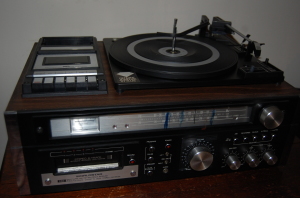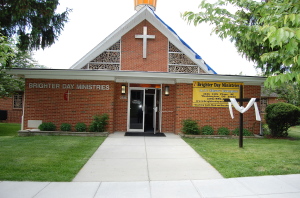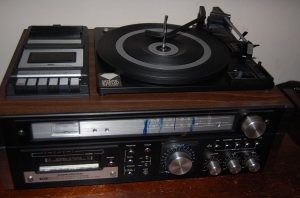1956
The Oldest Boomer is 10 years old.
Median Family Income: $4,800
Minimum Wage: $1.95
New Car: Ford: $1,611
Studebaker: $1,844
Gallon of Gasoline: 30 cents
Hershey Bar: 5 cents/ 1oz.
Movies: “Forbidden Planet,” “Friendly Persuasion,” “Giant,” “The Searchers,” “Around the World in Eighty Days,” “The King and I,” “The Ten Commandments,”
TV: “Queen For A Day,” “The Price is right,” “The Hardy Boys,” “To Tell The Truth,” “Steve Allen Show,” “The Edge of Night,” Elvis, rocked the “Ed Sullivan Show.” Elvis’ first appearance on “The Milton Berle Show.”
Music: “Carouse” & “The king and I,” Rodgers and Hammerstein. Fats Domino, “I’m In Love Again” & “Blueberry Hill,” The Platters, “The Great Pretender” & “My Prayer.”
1956 – Christianity Today is published. An Evangelical Christian magazine, it is the flagship publication of its parent company Christianity Today International. The founder, Billy Graham, stated that he wanted to “plant the evangelical flag in the middle-of-the- road, taking the conservative theological position but a definite liberal approach to social problems.”
From the book BOOMERS by Richard A. Jordan
1950s–1970s MAHALIA JACSON (Gospel Singer)
In 1950, Jackson became the first gospel singer to perform at New York’s Carnegie Hall when Joe Bostic produced the “Negro Gospel and Religious Music Festival”. She started touring Europe in 1952 and was hailed by critics as the “world’s greatest gospel singer”. In Paris she was called the Angel of Peace, and throughout the continent she sang to capacity audiences. The tour, however, had to be cut short due to exhaustion. Jackson began a radio series on CBS and signed to Columbia Records in 1954. A writer for Down Beat music magazine stated on November 17, 1954: “It is generally agreed that the greatest spiritual singer now alive is Mahalia Jackson.” Her debut album for Columbia was The World’s Greatest Gospel Singer, recorded in 1954, followed by a Christmas album called Sweet Little Jesus Boy, and Bless This House in 1956.
With her mainstream success, Jackson was criticized by some gospel purists who complained about her hand-clapping and foot-stomping and about her bringing “jazz into the church”. Jackson had many notable accomplishments during this period, including her performance of many songs in the 1958 film St. Louis Blues, and singing “Trouble of the World” in 1959’s Imitation of Life; recording with Percy Faith. When Mahalia Jackson recorded The Power and the Glory with Faith, the orchestra arched their bows to honor her in solemn recognition of her great voice.[She was the main attraction in the first gospel music showcase at the Newport Jazz Festival in 1957, which was organized by Joe Bostic and recorded by the Voice of America, and performed again in 1958 (Newport 1958). She was also present at the opening night of Chicago’s Old Town School of Folk Music in December 1957. In 1961, she sang at U.S. President John F. Kennedy’s inaugural ball. She recorded her second Christmas album Silent Night (Songs for Christmas) in 1962. By this time, she had also become a familiar face to British television viewers as a result of short films of her performing that were occasionally shown. Historian Noel Serrano stated: “God touched the vocal chords of this Great Woman and placed a special elixir to sing for His honor and Glory!”
At the March on Washington in 1963, she sang in front of 250,000 people “How I Got Over” and “I’ve Been ‘Buked, and I’ve Been Scorned”. Martin Luther King, Jr. made his famous “I Have a Dream” speech there. She also sang “Take My Hand, Precious Lord” at his funeral after he was assassinated in 1968. Jackson sang to crowds at the 1964 New York World’s Fair and was accompanied by “wonderboy preacher” Al Sharpton. She toured Europe again in 1961 (Recorded Live in Europe 1961), 1963–1964, 1967, 1968 and 1969. In 1970, she performed for Liberian President William Tubman.
Jackson’s last album was What The World Needs Now (1969). She ended her career in 1971 with a concert in Germany, and when she returned, made one of her final television appearances on The Flip Wilson Show. Jackson devoted much of her time and energy to helping others. She established the Mahalia Jackson Scholarship Foundation for young people who wanted to attend college. For her efforts in helping international understanding, she received the Silver Dove Award. Chicago remained her home until the end. She opened a beauty parlor and a florist shop with her earnings, while also investing in real estate ($100,000 a year at her peak).
From Wikipedia, the free encyclopedia

Edwin Hawkins
He’s credited with being the Bridge between old’school. and contemporary gospel. If Edwin Hawkins never recorded anything other than 1968’s “Oh Happy Day,”he would still retain a lofty place in gospel music. However , This master composer has created a legacy that clearly makes him one of the cornerstones of modern gospel.
Hawkins was born August 18, 1943, in Oakland, California. One of six children, he grew up in the Campbell Village projects, where his parents, Mamie and Dan Lee Hawkins, encouraged his musical skills at an early age. Hawkins began to plany the piano by age five and when he was seven took over the keyboards for his family’s vocal group. They recorded a custom project years later in 1957. Hawkins’s father was a tough taskmaster, so everything Hawkins and his siblings did was done with excellence lest they incur their father’s wrath. Hawkins excelled on many fronts. By the age of 16, he hosted a weekly Sunday night radio show and sang reularly at various churches in the Bay Area. As active members of the Ephesians Church of God in Christ (COGIC), family friend Betty Watson and Hawkins formed the Northern California State Youth Choir in the early 1960’s. “There was already a Southern California State Youth Choir,” Hawkins recalls. “And in our church, the choir would go to these conventions every year. So Betty and I put together a choir for people in Northern California to be repesented at the convention. After we come back from the convention, we all enjoyed working together, so we decided to stay together and make a record.” They recorded a cutom LP, Let Us Go into the House of the Lord, in 1968. the tune “Oh Happy Day” was on the project. “My mother had an old hymnal and I had a knack for rearranging hymns,” Hawkins says. “Oh Happy Day’ was and old hymn and I rearraned it. It was actually one of the least likeyl songs to become a hit. There were some much stronger songs on there. We were going to hand-sell the album in the Bay Area. We ordered 500 copies. Lamont Bench, Mormon guy, recorded that album on a two-track system. Those 500 copies sold, then a DJ at KSAN Radio in the Bay Area got a copy of it and started playing it.” Soon “Oh Happy Day” was stealing radio play on an FM radio station in New York City and other major cities. In her book We’ll Understand It Better By and By, gospel historian Bernice Johnson Reagon wrote, ” A graduate student at the time, I remember hearing the remarks of an African-Americ DJ when he introduced the song on WVON, a soul music radio station in Chicago: ‘Here’s a new song climbing the charts. I don’t know what to call it. It sounds like gospel and it sounds like soul. Whatever it is, the beat has a groove. I like it and I’m gonna play it.” The burgeoning success of the recording was a life-changing experience for Hawkins. ” I wasn’t planning to go into the music business and I wasn’t looking for a record deal. The record’s success decided my fate. I learned the business the hard way.” Sixteen major recording labels were interested in either buying or licensing the underground hit, but Buddha Records mase the best offer. “Some people thought the lable had something to do with the religion because of Buddha, but the was just a name,” Hawkins says. ” A Jewish guy name Neil Bogart [who later founded Casablanca Records and launched the careers of KISS and Donna Summers] owned it. We signed the contract Easter Sunday night in 1969. He and his partners flew out to see me brought me a check for $5,000. Coming from the projects, that was a lot of money to me.” It was then decided to change the ensemble’s name to the Edwin Hawkins Singers. Dorothy Morrison was the featured vocalist on the track and developed a bit of fame as the singer of the surprise hit. A national single and album were rushed out, and with Buddha’s muscle, “Oh Happy Day” reached No. 4 on the US pop singles chart and No. 2 on the American R&B singles chart as well. The group was suddenly the toast of Hollywood Place, The Smothers Brothers Comedy Hour, and Happening’68, among others. In 1970, the group won a Grammy award for Best Soul Gospel Performance for “Oh Happy Day”
Uncloudy Days The Gospel Music Encyclopedia by Bil Carpenter











I like this site. You have done great. I like how you refer to certain words which depicts a time past. History is a foundation and we ate creating it each day. Thanks for taking the time to go back in time to remind us of the good times!
Linda
Thank you so very much.
Truly beneficial thank you, There’s no doubt that your readers would probably want far more items along these lines carry on the excellent work.
Thank you so very much for your visit. Please visit do visit again and like your favorite posts and pages. Please share the site with others. Please have a happy and blessed new year.